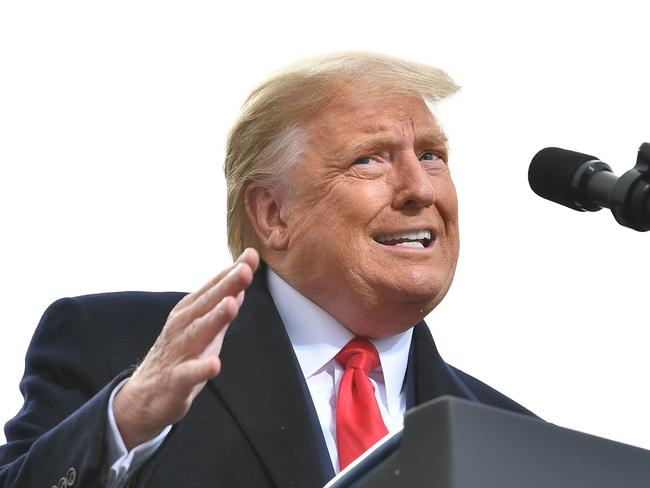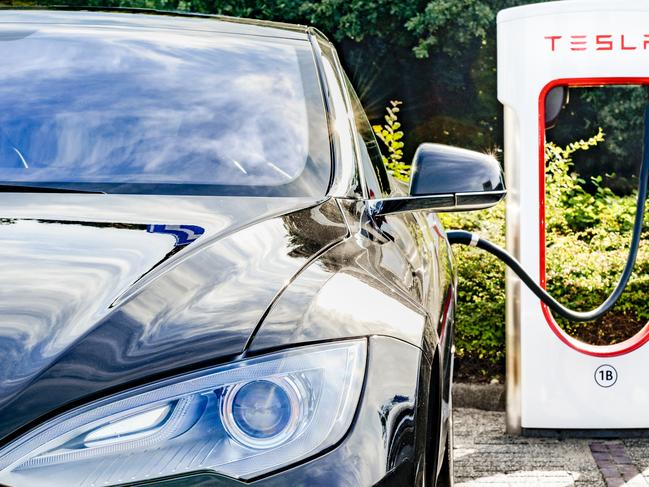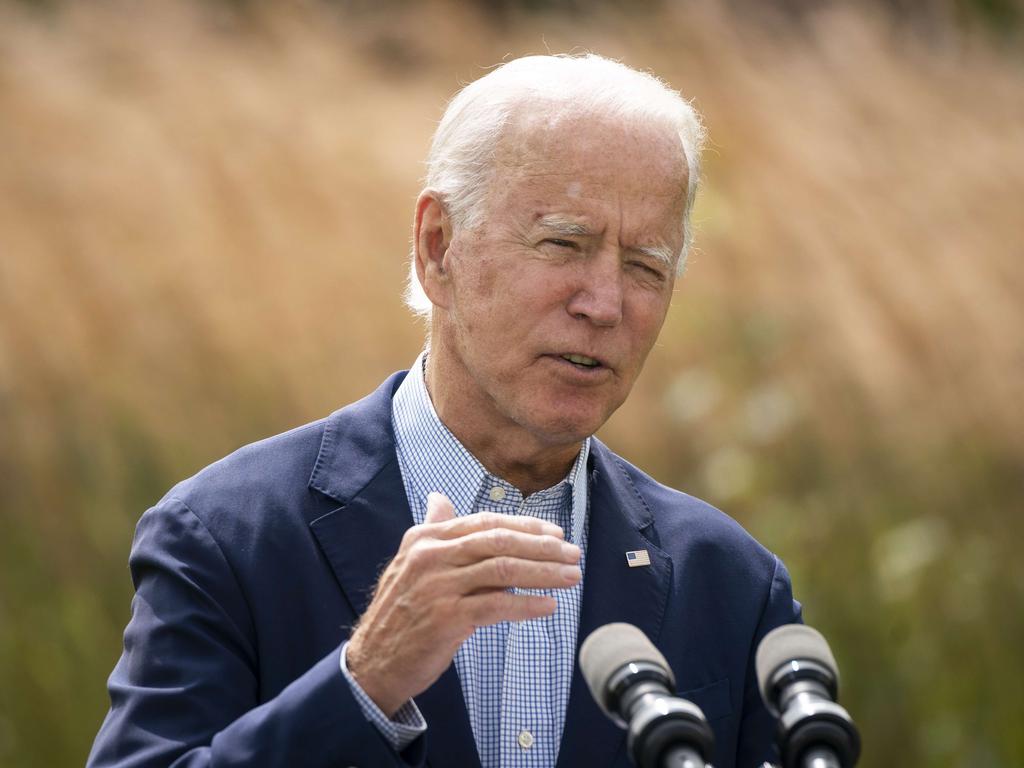Joe Biden election win would transform global energy policy

Victoria stayed locked because of seven new cases, or a little more than one per million population; America’s new daily number is 255 per million. At a rally, President Trump said: “Covid covid covid covid, that’s all you hear these days… on November 4th, you won’t hear about it anymore.”
So with cases spiking all over the country, Trump has made sure the election is a referendum on the pandemic, and specifically his handling of it.
For that reason alone, you would think his goose is cooked, but the US election will now be watched more closely than ever by political leaders everywhere, not least by Australian state premiers, to see whether denial and insouciance in the face of rising COVID-19 cases might be actually be a viable strategy.
Certainly if Trump wins having flatly lied that the virus is going away when it’s plainly not, and promising to shut down talk about it after November 3, it’s likely that political responses to the virus will be reshaped all over the world, although there is a solid argument to be made that Americans are different to everyone else and may not be a good guide for politics elsewhere.
But this election started out as a referendum on energy policy and climate change, as well as on Trump as a person, and in reality it still is that.

That’s because although Joe Biden spends more time these days talking about COVID-19 and healthcare, energy remains the most substantial part of his agenda, and the most different to Trump’s climate change denial.
If Biden wins as the polls predict, global energy politics will be transformed … in the midst of this year’s UN Climate Change Conference in Glasgow. And the Australian government will be forced to rethink its own approach.
The core of Biden’s energy policy is a target of net zero emissions economy-wide by 2050, and by 2035 in the electricity sector. To achieve that he is proposing to spend $US2.0 trillion over four years targeting, among other things, decarbonisation of the transport sector via fuel emissions standards and 500,000 new electric vehicle charging stations, and $US400 billion ($A564 billion) of investment in new technologies such as hydrogen.
Needless to say that sort of money blows the Australian government’s $1.9 billion energy technology plan unveiled a month ago out of the water.
Not that we could ever match that sort spending of course, but we could match the centrepiece of the Biden plan: an “enforcement mechanism (that) will be based on the principles that polluters must bear the full cost of the carbon pollution they are emitting and that our economy must achieve ambitious reductions in emissions economy-wide instead of having just a few sectors carry the burden of change.”
Moreover: “The enforcement mechanism will achieve clear, legally-binding emissions reductions with environmental integrity.”
This clearly implies some kind of carbon price, although nowhere is that specifically called for in Biden’s policy and he has left it open in speeches. Axios recently ran an “exclusive” story that “Joe Biden is unlikely to pursue a carbon tax” if he wins in November, attributed to “several people familiar with his campaign’s thinking”.
So, still open. Most of the scientific commentary on net zero emissions by 2050 suggests that the only way that would be achievable is through a price on carbon, most likely through an emissions trading scheme rather than a straight carbon tax.
China has also announced plans for a cap-and-trade system for pricing carbon, so if the United States joins China and the existing European emissions trading scheme, it would effectively be global. Suddenly Australia would be the proverbial shag on a rock, with tiny spending on energy technology and no emissions trading scheme.
The other significant part of the Biden policy is his plan to accelerate the take-up of electric vehicles, with 500,000 new public charging stations by 2030, and restoration of the full electric vehicle tax credit.
This will also be transformational, also adding to policies in Europe and China: the EU Commission now proposes a 50 per cent reduction in fleet emissions of carbon dioxide by 2030 (which effectively mandates a 50 per cent electric vehicle penetration rate Europe), and China is targeting 25 per cent neighbourhood electric vehicle penetration by 2025 to go with its net zero emissions by 2060 target.

Last week, Morgan Stanley increased its forecast for global EV penetration from to 13.2 per cent globally by 2025 (from 11.6 per cent) and 31 per cent by 2030 (from 26 per cent). If Biden wins next week, it’s likely to happen even more quickly.
Apart from anything else, this will lead to the rapid expansion of several battery material commodity industries: lithium, nickel, copper and graphite. There will also be enormous investment going into battery technology as well as making hydrogen for long-range electric fuel cells – for trucks, ships and possibly even aircraft.
And an important point about all this is that the pandemic is irrelevant to it: the transition to reduced carbon emissions, and specifically the replacement of the global transport fleet with electric vehicles, is going to happen no matter what COVID-19 does.
* Alan Kohler is Editor in Chief of Eureka Report


Like politics everywhere, the US election – which started out being all about climate change - has been hijacked by the virus, as the country set a new single-day record on Sunday for new cases of 84,218.